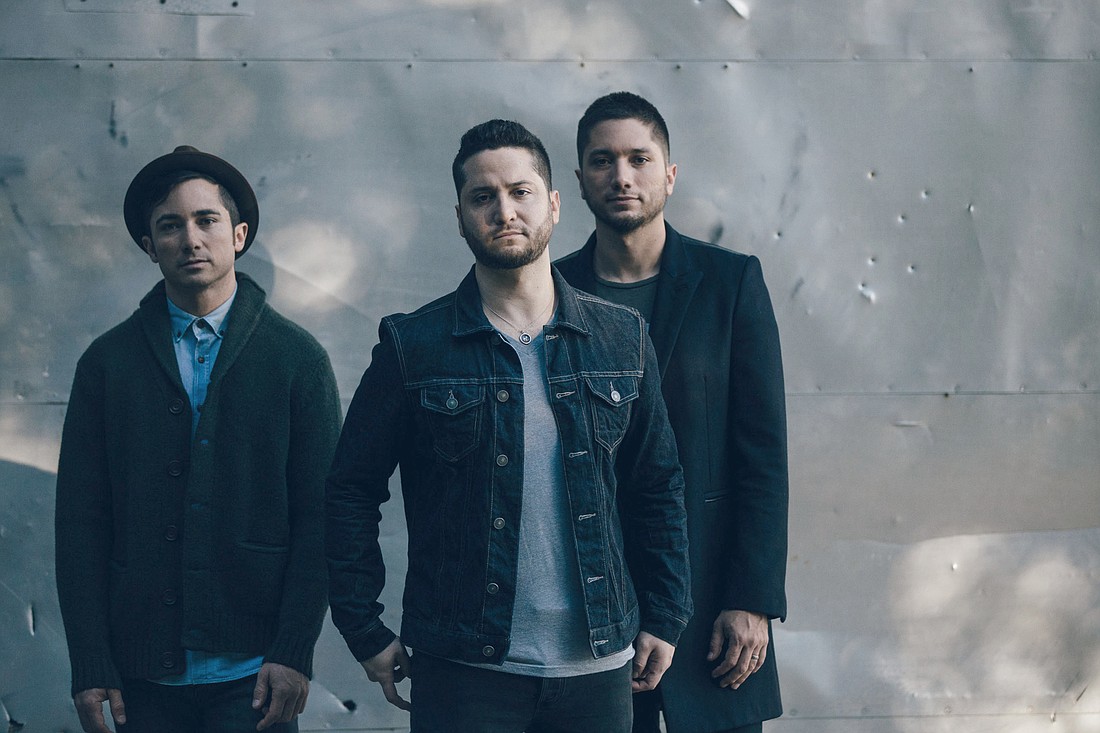- July 18, 2025
-
-
Loading

Loading

It was almost a decade ago when the Manzano brothers, Alejandro, Fabian and Daniel, collided with pop star Rihanna in their father’s Sarasota garage.
Sort of.
The Manzanos, brothers behind Boyce Avenue, a melody-infused ’90s-style alternative rock band, produced a homemade video with a camcorder playing a cover of Rihanna’s hit “Umbrella.” It was the day before she performed it at the Video Music Awards in 2007.
A viral hit on YouTube, mostly overseas, the video was the impetus for what Boyce Avenue has since turned into a notable music business anomaly: Sustained success from shunning industry norms, such as not living in a major music city, not recording under strict control of record companies and not using terrestrial radio to find an audience.
“Our whole model and mindset,” says guitarist and backup vocalist Fabian Manzano, 31, “is to embrace all the changes in the industry for the positive.”
More counterintuitive triumphs: The band’s concerts draw throngs of crowds everywhere from the Philippines to Hong Kong to London, but the brothers are mostly anonymous in Sarasota, where they live and grew up.
"In the beginning it was a hobby. We didn’t start out wanting to be rock stars." —Fabian Manzano, Boyce Avenue
While others have had limited success with variations of the YouTube-first model, Boyce Avenue has flourished with it. Their YouTube channel, through late April, had 8.2 million subscribers, and their videos had been viewed an eye-popping 2.54 billion times. The band has 3 million Facebook likes and 219,000 Instagram followers. About 10% to 15% of the band’s revenues come from ads it sells of YouTube. The rest is from tours, merchandise and digital album and single sales via iTunes, Pandora and other streaming sites.
Boyce Avenue’s latest attempt at an anti-industry standard success is its new album, with original songs. Aptly named “Road Less Traveled,” it was released April 15. “We are very much the type of people who just like to jump right in and try things,” Fabian Manzano says.
The first phase of trying new things was the YouTube strategy. Boyce Avenue has covered more than 60 hit songs on YouTube over the last decade, since “Umbrella.” The covers, for which the band pays copyright fees, helped create a robust digital following.
With the YouTube success, the band hit the road. It has gone on tour at least a dozen times in Europe, and has also played shows in Mexico, Dubai and Jakarta, among other exotic locales. It took at least six tours, says Fabian Manzano, to make a profit from the road, playing around with the formula of gear, musicians and travel versus ticket and memorabilia sales. A two-month North American tour, from Seattle to Orlando, kicks off in September.
The online approach worked so well that in 2010, officials with record label Universal Republic approached Boyce Avenue about a contract for an original-songs album. The band signed on. But its members struggled under the lack of freedom in a big company, and bought out their contract in 2011.
The brothers went back to the YouTube-cover strategy, mixed in with original recordings they produced on their own. That strategy continues today, with high volume, in songs and videos, if not sound, being a key component. “The name of the game for us is to produce as much quality content as possible,” Fabian Manzano says.
To facilitate that, the band recently made a mid-six figure investment in the quality side: It bought a house in Sarasota, off Clark Road, and turned it into a high-end, high-tech recording studio. The band added about 1,000 square feet to the house, and the studio includes ceilings three times thicker than normal and walls filled with sand and concrete for extra sound protection. The décor is modern with a California vibe. Says Manzano: “We wanted it be warm and inviting.”
The counterintuitive music industry strategy wasn’t the plan in the beginning. At first, in 2005, the band did things the old-fashioned way: played bars in a college town (Gainesville) for $150 a show.
Fabian and Alejandro were students at University of Florida back then, and Daniel, a Harvard Law grad, was in a post-graduate program. The YouTube idea was try-it-and-see, not a grand plan.
“In the beginning it was a hobby,” Manzano says. “We didn’t start out wanting to be rock stars.”